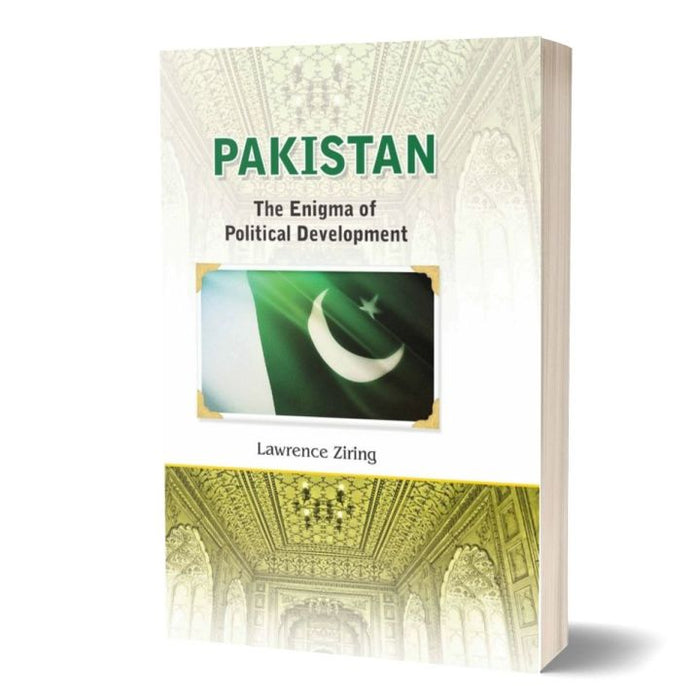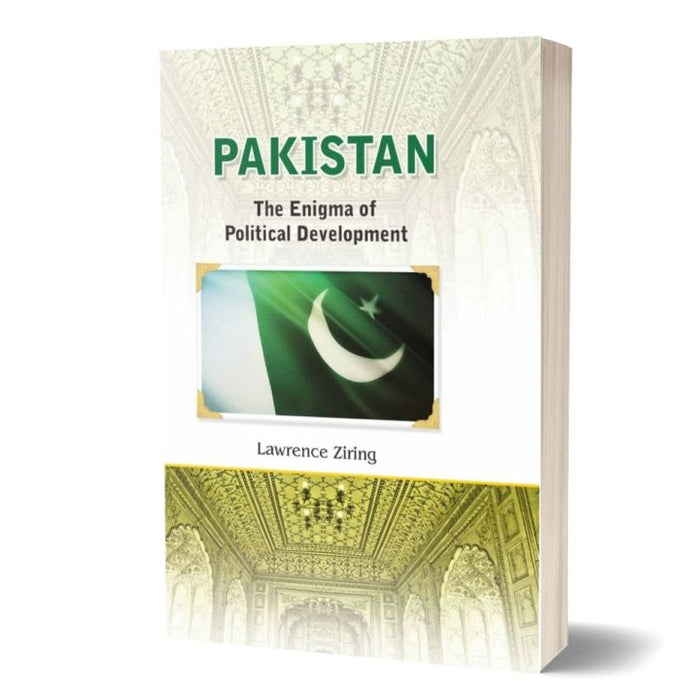Pakistan the Enigma of Political Development by Lawrence Ziring
- Publisher: PEACE PUBLICATIONS
- Availability: In Stock
- SKU: 37444
Rs.970.00
Rs.1,275.00
Tags: Civilian Governments in Pakistan , Democracy vs Dictatorship in Pakistan , Military in Pakistan Politics , Pakistan Democracy Struggles , Pakistan Foreign Policy , Pakistan History and Politics , Pakistan Political Analysis , Pakistan Political Culture , Pakistan Political Development , Pakistan Political Parties , Pakistan Politics History , Political Development in South Asia , Political Instability in Pakistan , Ziring Pakistan Politics
Pakistan: The Enigma of Political Development
🖋 Author: Lawrence Ziring
📚 Publisher: University of Pennsylvania Press
Pakistan: The Enigma of Political Development by Lawrence Ziring is a scholarly exploration of Pakistan's political landscape and the challenges it has faced in its journey toward political development since its inception. The book provides a detailed analysis of the country’s complex political history, the role of various institutions, and the interaction between democracy, military influence, and societal structures.
The book is widely regarded as one of the most comprehensive studies on Pakistan’s political development, offering critical insights into the political dynamics and the institutional obstacles that have shaped its governance. Ziring’s work examines how Pakistan’s politics have evolved in response to internal and external challenges and how different political players, from military leaders to civilian politicians, have influenced the direction of the nation.
Key Themes and Topics Covered:
📌 The Early Years of Pakistan’s Political Development:
The book begins by examining the formative years of Pakistan after its creation in 1947. Ziring explores the initial political structure, the challenges of nation-building, and the legacy of British colonial rule on Pakistan’s governance.
📌 The Role of Military in Politics:
A central theme in the book is the significant role played by Pakistan’s military in the political process. Ziring provides an in-depth look at military coups, the imposition of martial law, and the military's influence in shaping political decisions and structures. The book discusses how military rule affected democratic institutions and governance.
📌 Civilian Governments and Democratic Struggles:
Ziring also delves into the efforts of civilian governments to establish democratic rule in Pakistan. He highlights the challenges faced by politicians in navigating the political system, often marked by instability and corruption. The relationship between the political class and the military is analyzed in detail, including the frequent interference by the military in civilian governance.
📌 Pakistan’s Political Culture:
The author explores Pakistan’s political culture, the evolution of political parties, and how cultural, religious, and regional identities have influenced the political landscape. He discusses the impact of ethnic and sectarian divisions, the role of religion in politics, and the emergence of political dynasties.
📌 Democracy vs. Dictatorship:
A significant portion of the book focuses on the cyclical struggle between democracy and military dictatorship in Pakistan. Ziring looks at the various military regimes that have dominated Pakistan’s history and the brief periods of civilian rule. He explains how this cycle has hindered the development of stable democratic institutions.
📌 Social and Economic Development:
The book also addresses the challenges of social and economic development in Pakistan. Ziring examines how political instability has hindered progress in areas such as education, healthcare, and economic growth. The author looks at the distribution of wealth and power and how economic policies have been shaped by political agendas.
📌 Pakistan’s Foreign Policy and Regional Issues:
Ziring gives considerable attention to Pakistan's foreign policy, particularly its relations with neighboring countries like India, Afghanistan, and China. He discusses how domestic politics have influenced Pakistan’s foreign policy decisions, including military engagements, alliances, and its stance on the Kashmir issue.

























